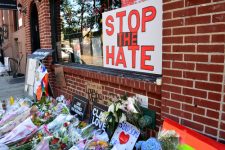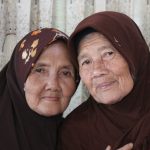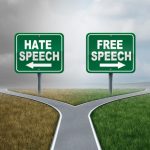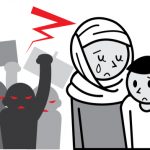Australian Police Don’t Take Hate Crime Seriously

It has been reported that of the thousands of hate crimes recorded in police statistics across the nation each year, only a very small proportion are ever prosecuted.
Recent findings
Data released by Victoria Police suggests that, on average, three hate crime offences occur in that state every day.
Over the past four years, Victorian police flagged a total of 4,257 offences linked to prejudice that falls under hate crime legislation.
Despite this, the state has only recorded three convictions under the legislation.
Broader experience
Racial vilification is not a discrete offence in Tasmania, the Northern Territory or the ACT.
In New South Wales, no-one has been convicted of threatening or inciting violence on the basis of prejudice since records began in 1994. The same goes for South Australia, which has had a Racial Vilification Act since 1996.
According to Professor Gail Mason from the Sydney Institute of Criminology, approximately one bias crime, suspected bias crime or bias incident is reported in NSW every day. The Professor emphasises that many more remain unreported, and that many reported crimes may not be identified as hate crimes as police rarely ask the right questions when determining the motivation for crimes.
Minority experience
As previously reported, a study by Professor Mason found that over 70% of religiously motivated hate crimes in our state are targeted at Muslim people.
Asian and Indian/Pakistani people are most commonly reported victims in racially motivated crimes, comprising 28% and 20% respectively.
The Professor explained that these groups are systematically being ignored by police, who rarely take such crimes seriously.
NSW Discrimination Laws
in 1989, NSW became the first Australian state to introduce a discrete offence against racial vilification through the insertion of section 20C into the Anti-Discrimination Act 1977.
The section makes it unlawful – but not a crime – for a person, by a public act, to incite hatred towards, serious contempt for, or severe ridicule of a person or group on the grounds of race.
On 21 June 2018, the NSW Parliament passed the Crimes Amendment (Publicly Threatening and Inciting Violence) Bill 2018.
The Bill inserted section 93Z into the Crimes Act 1900 (NSW), which prescribes a maximum penalty of 3 years in prison and/or a fine of $11,000 for publicly threatening or inciting violence on the grounds of race, religion, sexual orientation, gender identity or intersex or HIV/AIDS status.
The offence extends all electronic and digital forms of communication that are made public, including social media posts.
Attorney-General Mark Speakman admitted that the existing anti-discrimination provisions were ineffective as they have not led to a successful prosecution in 30 years.
“We are very serious with these laws and we will throw the book at anyone who breaches them,” he said at the time, adding that “procedural hurdles” and the “convoluted wording” of the legislation reduced the likelihood of prosecution.
Reluctance to prosecute
Professor Mason suggests that the main reason hate crimes are rarely prosecuted is that authorities fail to take such events seriously.
Her survey of police officers in NSW found that:
“There was a view that the bias crime initiatives were seen as paying lip service to appease minority groups rather than it being a dedicated and strong commitment to the issue.”
One of the police interviews stated, “The biggest issue with NSW Police is we’re run by old white men,” adding, “I think the direction in this organisation has always been to shut the minorities up.”
A United States expert in far-right criminal groups, Matt Browning, recently told a law enforcement conference in Sydney that local police had “their heads in the sand” when it comes to hate crime offences.
Attending police were less than impressed when he brazenly advised them, “you have people that are here and Sydney-based who are travelling around the world financing and funding white supremacist organisations… why aren’t we watching them, why aren’t we going after these people?”
“Everybody was sticking their heads in the sand and it was because nobody really wanted to admit the fact that an Australian could be a member of a hate group”.







